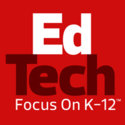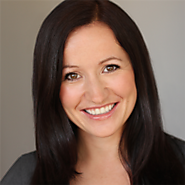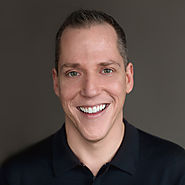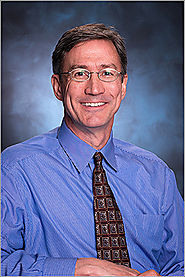-
About
- About Listly
- Community & Support
- Howto
- Chrome Extension
- Bookmarklet
- WordPress Plugin
- Listly Premium
- Privacy
- Terms
- DMCA Copyright
- © 2010-2025 Boomy Labs

 Frank Smith
Frank Smith
Listly by Frank Smith
Nominations for EdTech magazine's annual list of must-read K-12 educational technology blogs. For more info, check out last year's list: http://www.edtechmagazine.com/higher/article/2015/05/2015-dean-s-list-edtech-s-must-read-higher-ed-it-blogs

Dr. Josie Ahlquist is a digital leadership educator, discovering the intersection of social communication technologies and leadership development in Higher Education. She challenges how higher education thinks about social media for community building, leadership development and student services. Her blogs connect scholarly research to best practices for students and educational leaders. Josie also serves as a faculty member at Florida State University and international leadership speaker.

Paul Gordon Brown, Phd, is a scholar and blogger specializing in student learning and development’s intersection with technology, social media and design. Paul has over 15 years of professional experience in higher education and student affairs in a diverse array of functional areas from entry level to senior administrative roles. He has also served as an instructor in multiple Higher Education Masters programs. Paul’s current role is as the Director of Curriculum, Training, and Research for the higher education technology software company, Roompact. As an independent speaker and consultant, he has shared his passion with diverse audiences nationally and internationally from Anchorage to Dubai. He was recognized by LinkedIn as “one to follow,” by SlideShare as a “Keynote Author,” and by EdTech Magazine as a top higher education blogger. His latest book is a collaboration with Erik Qualman as a contributing author to “What Happens On Campus Stays on YouTube.”

Blogger and author Audrey Watters' Hack Education offers a spirited dissection of the state of education technology and its impact on the education system. For those seeking an alternative, outside-the-industry perspective, this is a blog not to be missed.

EDUCAUSE is the foremost authority on higher education IT. This nonprofit association drives real change, connects IT professionals around the country and hosts one of the best higher education conferences of the year. Their staff blogs frequently on everything from pedagogy to cybersecurity.

Alan Levine launched his first website in 1993 while working for Maricopa Community College in Arizona. In the last 20 years, he has served as the vice president of community and the CTO at the New Media Consortium and has written thousands of blog posts — 400 in 2012 alone — on web development and disruptive.

This is a blog managed by Michael Feldstein and written by authors handpicked from the ed-tech field. Posts come at a regular clip on e-Literate and tackle the challenges facing the industry, often reminding readers of alternative perspectives.

Gail Carmichael is passionate about computer science education — particularly in drawing girls to the mostly male-driven industry. Posts by Carmichael, a faculty instructor at Carleton University, in Ottowa, Canada, feature an in-depth look at what it takes to make a comp-sci education fascinating.

Lisa Nielsen, a longtime educator and author, uses her blog to explore new learning methods and to shine a light on inefficiencies and deficiencies in education. Nielsen also leads Google Hangouts sessions with fellow educators and information technologists, during which they discuss their experiences with innovative classroom tech tools.

Bob Planker, an IT expert's blog gets its moniker from play on the name of X-Files' "Lone Gunmen" hackers. Planker's blog draws attention to the human side of IT management, highlighting accomplishments that don't just come from surviving times of technical crisis.

The Learning Ecosystems blog at http://danielschristian.com/learning-ecosystems/ covers a variety of teaching and learning environments -- whether they be face-to-face, blended, or online. It has a heavy emphasis on the discovery and use of promising technologies that are used to maximize learning. Daniel Christian spots and relays to his readers the most relevant, effective incoming "waves" that will be important to ride within higher education.
Amongst the vast array of up-to-date and even futuristic topics that he addresses, Christian highlights solid pedagogies, innovative ideas, and excellent resources regarding learning spaces. One of the trends that Christian continues to cover is that all of us are no longer running sprints (i.e., getting a 4 year degree and calling it good for the rest of our careers/lives). Rather, we are now into running marathons (i.e., lifelong learning). To continue learning over a lifetime, we need to know how to build and maintain thriving, growing, up-to-date learning ecosystems. People, tools, connections, and technologies will come and go in terms of our learning ecosystems; they will constantly morph over time. By growing healthy, robust learning ecosystems, we can better tap into -- and contribute to -- the constantly moving streams of content that are flowing by us.
